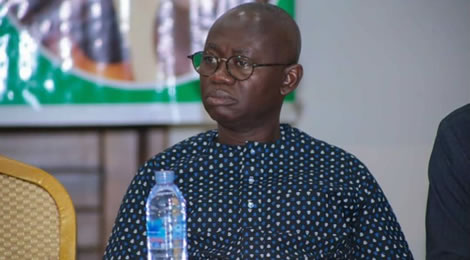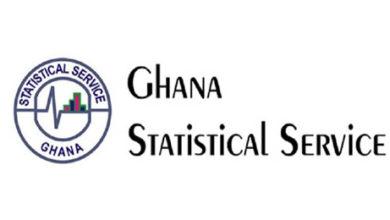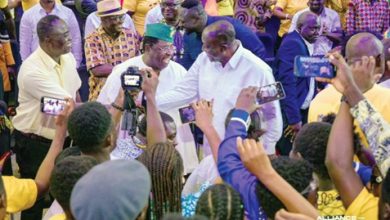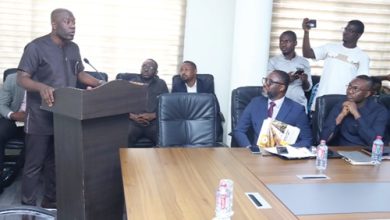National Standardised Test not competitive – GES Director-General

The Director-General of the Ghana Education Service (GES), Professor Kwasi Opoku-Amankwa, has explained that the just ended National Standardised Test (NST) seeks to assess the strengths and weaknesses of the children not a competitive examination.
“For every specific school, you will get the results of your students and this will tell the school, teachers, head of the school, the School Improvement and Support Officers (SISO), as well as the districts, the weaknesses of the children,” he explained.
He said the outcome of the examination would enable the school to help the children to improve on their strengthens and find ways of remedying the challenges or weaknesses.
Speaking last Friday after touring some basic schools designated as the examination centres of the NST in the Adentan Municipality in Accra, Prof. Opoku-Amankwa expressed satisfaction of the examination, describing it as generally successful even though there were some challenges.
Tour
Prof. Opoku-Amankwa, who was accompanied by the Adentan Municipal Director of Education, Madam Gifty Mussey, toured the Adentan Community School Centre, the Sowa Din ‘1’ Basic School and Sowa Din ‘2’ Basic centres, during which he interacted with the pupils, invigilators and supervisors.
A total of 470,768 took part in the test, which has been introduced under the Education Strategic Plan (ESP), to provide feedback to address learning poverty.
As part of the ESP, the NST will be conducted once every two years to provide stakeholders in the education sector with relevant data to address learning variations by region, gender, location and school type.
He acknowledged challenges such as the late arrival of the examination papers, challenges of shading by pupils and other minor issues which did not impact the outcome of the examination.
Assessment
Prof. Opoku-Amankwa explained that the examination was assessment for learning and of learning, saying that “it will help us to assess learning itself and then assess how we do our teaching.”
He was optimistic that if the NST was sustained, within the next few years, “we will see some massive improvement in our educational delivery such as the quality of teaching and learning will improve’’.
Responding to questions that some teachers could help their pupils during the examination, Prof. Opoku-Amankwa said, “management did not anticipate that because the teachers were informed that the examination would not be competitive.
“If a school should assist its pupils to perform well, it will be to the disadvantage of the children because it will mean that the pupils in that school do not need any intervention,” he explained.
Prof. Opoku-Amankwa explained that data to be gathered from the outcome of the examination would help management to deploy interventions where there were best needed.





